March 22nd, 2016 by Rachel | Tags: Disability, Peace Corps, Photo Essay | No Comments »
One year ago, I wrote a post on how persons with disabilities are denied access to water. In honor of World Water Day, I would like to share some exciting updates on how one gentleman is making water more accessible for persons with disabilities who have no indoor plumbing in their homes.
Before I share updates, I would like to briefly recap what happened one year ago. When Hilda Bih invited Farmer Tantoh one year ago to be interviewed on the radio to talk about how can we make water more accessible for persons with disabilities who have no indoor plumbing in their homes, Farmer Tantoh had no prior experiences in working with persons with disabilities. He was however very experienced in building water catchments to provide improved access to clean water for the general communities. While building water catchments would provide better access to clean water, it is not necessarily always accessible to persons with disabilities. To get clean water from a water catchment, it sometimes requires long walks on steep hills. When Hilda asked him how he can make water more accessible for persons with disabilities, he was at a loss on what would be the best solution because he had never worked with persons with disabilities.
The following day, Farmer Tantoh took me and Hilda to one of his water project sites in Bafut where he built a water catchment. Hilda could not get to the water faucet at all with her wheelchair. The water catchment was located at the bottom of a steep hill. A few days later, Farmer Tantoh took me to another water site in Nkwen where he is also building a water cachement. We had to climb up on very steep, uneven and slippery hills to get to the water source. I told Farmer Tantoh that no persons with mobility and/or visual disability can get water in this kind of environment. I told him that the site is still even dangerous for persons without disabilities because they could fall and break their bones and become disabled if they have no access to healthcare due to financial reasons.
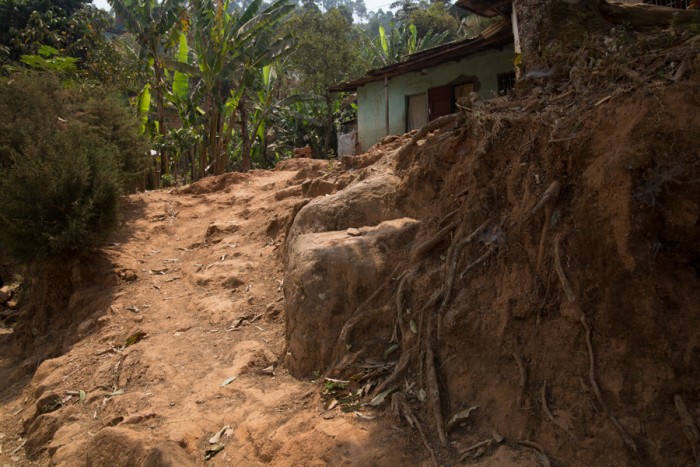
This is a steep and slippery hill that people have to climb to get water in Kwen.
Between Hilda asking Farmer Tantoh on the radio on how can we make water more accessible to persons with disabilities and seeing how Hilda could not get to the water source in Bafut and my commenting to him on how it’s not possible for persons with disabilities access water in Nkwen, he went on a mission to make water more accessible to persons with disabilities. He recently gave me some very exciting reports. He is building a water faucet at the top of the hill in Bafut so no one has to walk downhill. He is building a water faucet at the bottom of the hill in Nkwen so that no one has to climb up the steep and slippery hill. I visited the water site recently, and I saw that he is making great progress in reconstructing the water site.
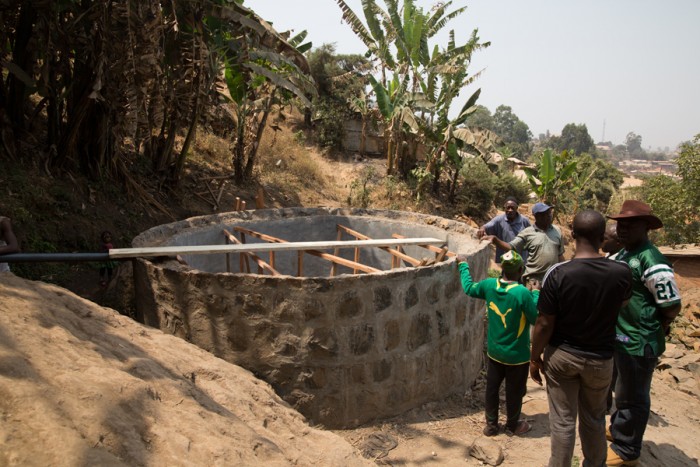
This is the water cachement that Farmer Tantoh and the people in the community are building in Nkwen along with a new water faucet at the bottom of the hill.
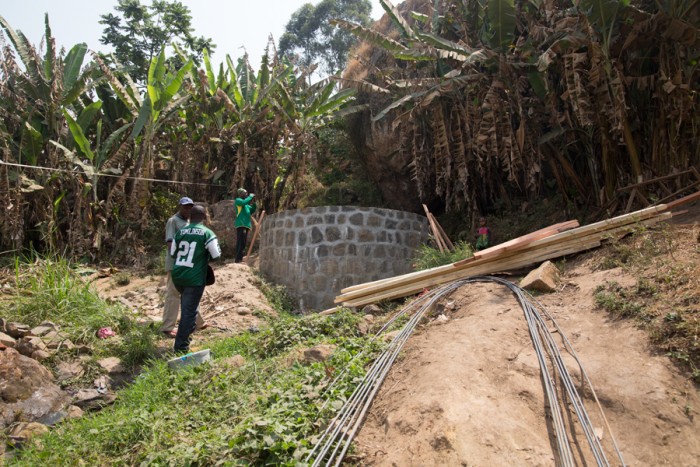
He also went to Yaounde to speak on the national radio about his work in making water more accessible for persons with disabilities and gave his phone number. Since the radio show, he has been contacted by visually impaired people to make water more accessible.
For the past few months, he along with a good friend of his who works with children with disabilities, Felix, have been visiting homes of visually impaired students and delivering them water as they have no indoor plumbing. While this system is not sustainable as it requires people to go to a public tap and pour water into jugs and then deliver jugs to the homes, Farmer Tantoh has really shown a tremendous passion and commitment to making a difference for persons with disabilities by committing to delivering water every weekend to a vulnerable population.
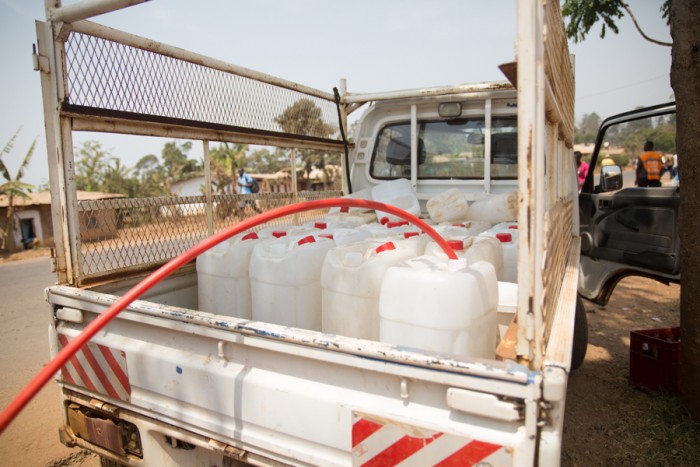
Farmer Tantoh and Felix get water from a public tap.
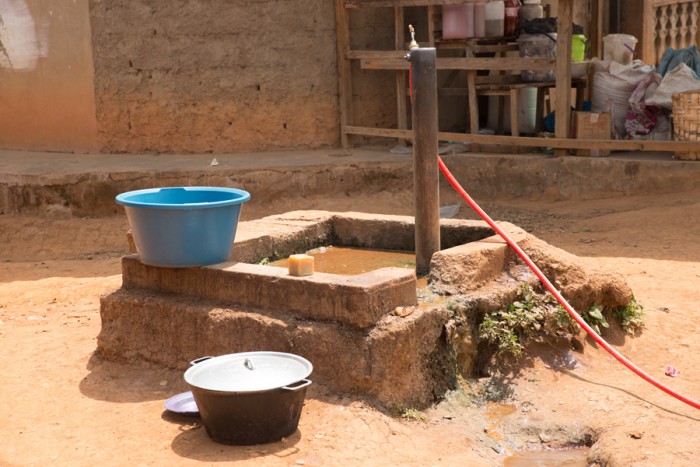
This is the public tap where they get water.
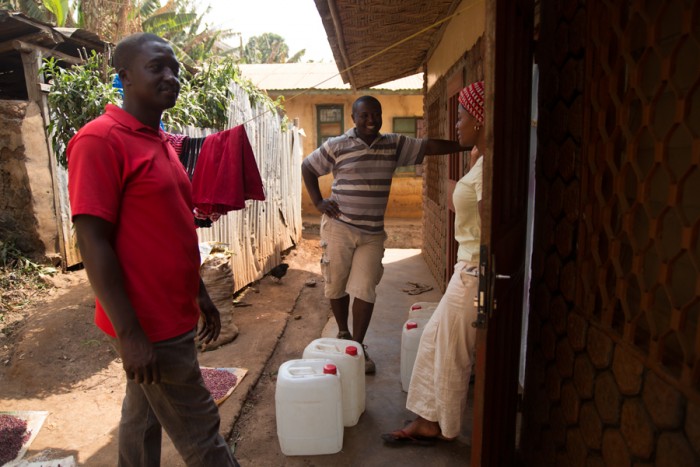
Farmer Tantoh and Felix deliver water to visually impaired students.
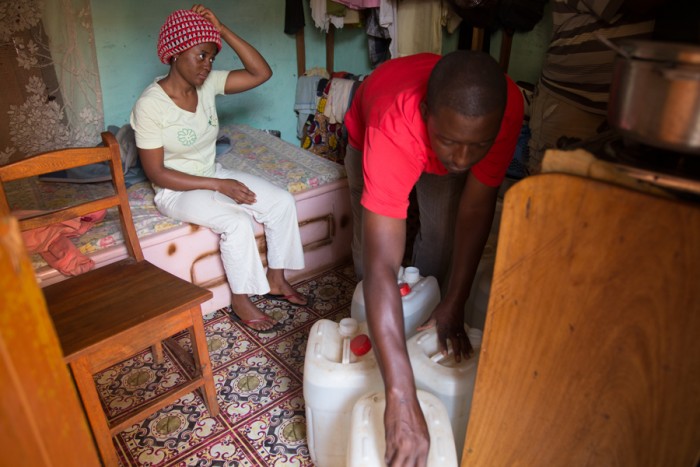

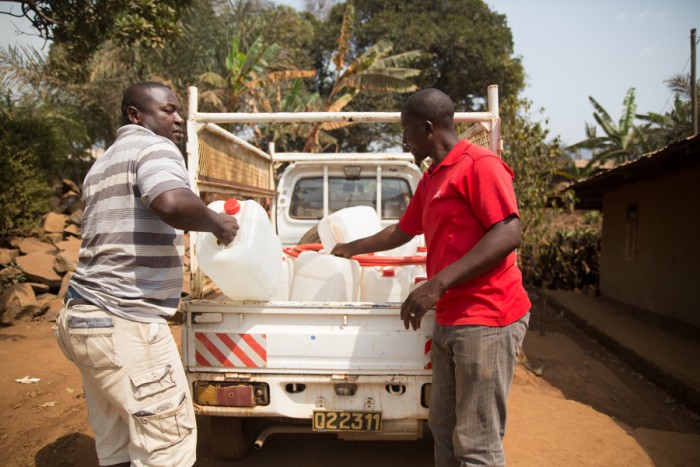
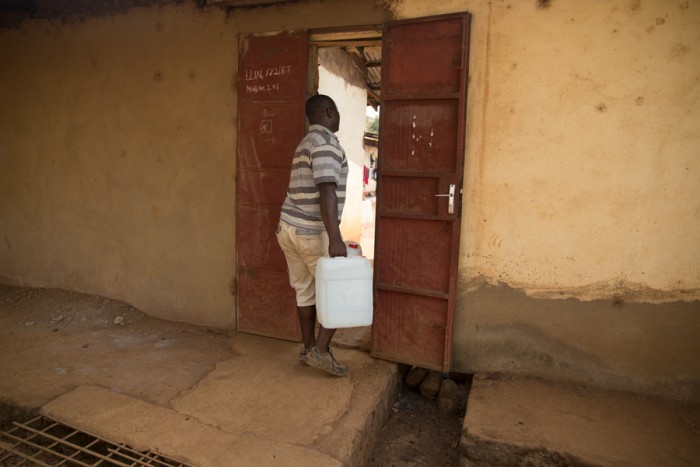
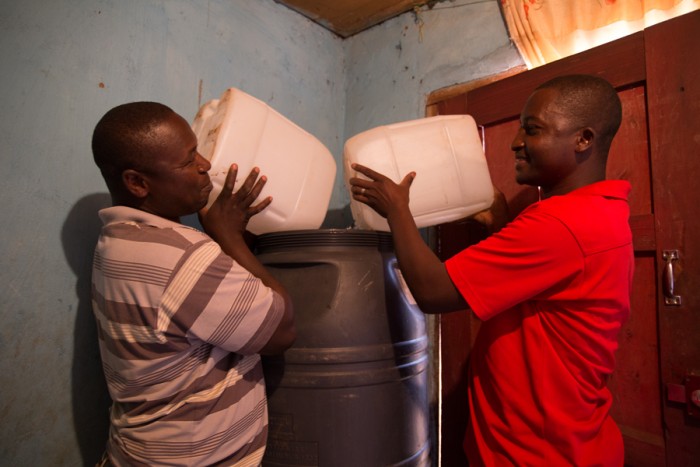
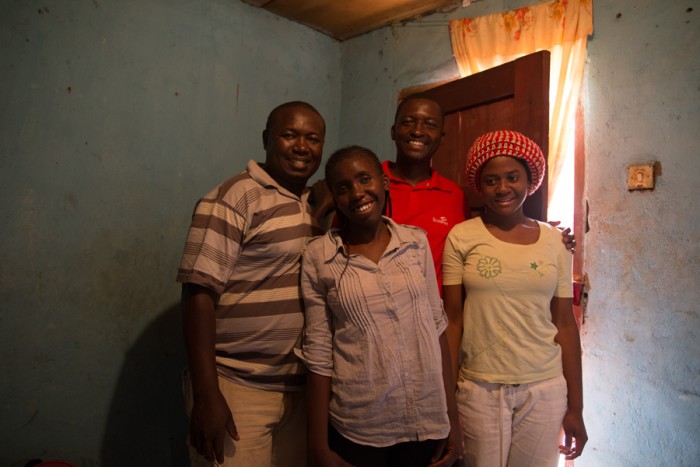
Farmer Tantoh, Felix and two visually impaired students.
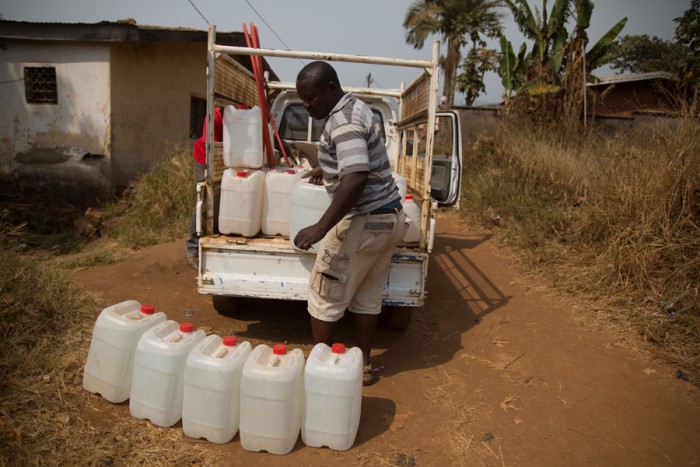
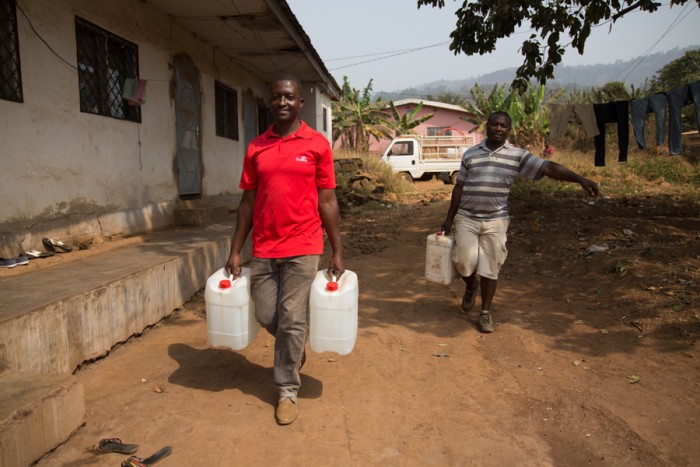
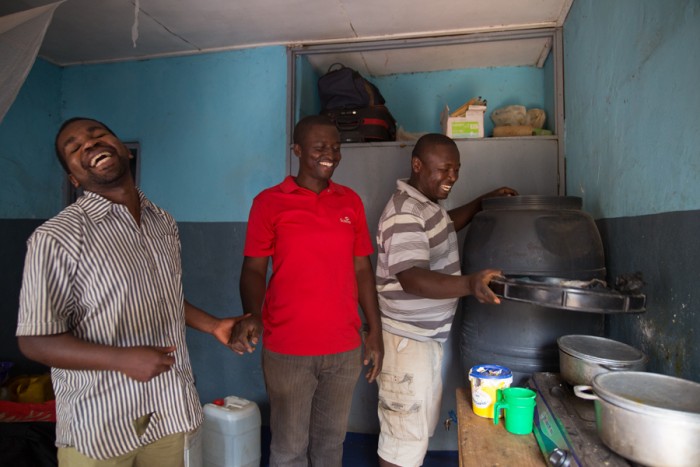
While educating him about making water more accessible for persons with disabilities did spark an incredible and unprecedented change, I give Farmer Tantoh a tremendous amount of credit for taking the courage to make sure the most vulnerable population has access to one of the most important resources that is considered a fundamental right for human beings.
